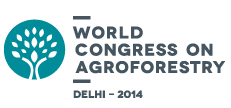Spice market value chains and implications for development in the East Usambaras, Tanzania
Spice market value chains and implications for development in the East Usambaras, Tanzania
wca2014-2094 Renee Bullock 1,* 1Geography, University of Florida, Gainesville, United States: Market and value chain interventions for agroforestry products are promoted as strategies to alleviate poverty and foster gender equitable market opportunities. The increase in demand for certified organic products from tropical Africa has led to the rapid growth of smallholder organic contracting schemes in the region. The potential of these schemes to meet development objectives depends on whether they improve market access for commonly marginalized groups, including poorer households and women. The objective of this study is to investigate the extent to which smallholder organic contracting is socially inclusive in the East Usambaras, a world renowned biodiversity hotspot in Tanzania. A value chain analysis was used to compare production and marketing of cardamom and black pepper in certified and informal value chains. Next, 163 household surveys were administered to ascertain whether wealth and gender relations differ by chain. An asset based approach was used to develop a local measure of wealth and was then analyzed using principle components analysis. Logistic regression model results showed that higher education and wealth were significant and positively correlated with participation in the certified contract scheme. Descriptive data results revealed that gender relations in the areas of production, labor, and marketing opportunities did not differ significantly between chains. Generally, women demonstrate lower rates of participation in decision making and marketing, while men report allocating more labor than women for farm activities. These findings suggest that the organic smallholder contracting scheme is not socially inclusive based on the measures used here. Local, context specific factors and institutional dynamics mediate and shape producer opportunities and constraints to participation. Consideration of these factors is critical to enhancing the potential of value chain interventions to foster inclusive, broad based growth.

